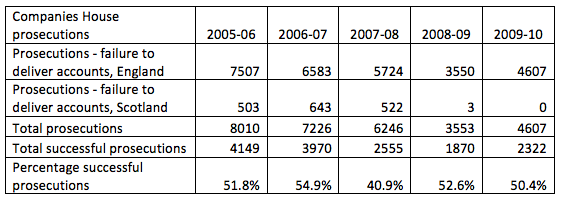There is a fascinating, and worrying, article in The Scotsman this morning, saying:
The taxman has denied that there has been a change in its attitude towards company insolvencies, despite figures showing a 70 per cent drop in the number of “winding-up” orders sought through the courts.
HM Revenue & Customs (HMRC) applies to courts for winding-up orders so that it can liquidate firms' assets in order to recover the tax it is owed.
Figures released today show that HMRC filed only 315 petitions in the year to 31 March in Scotland, down from 986 in the previous 12 months.
It goes on to say:
Sources within the insolvency sector have repeatedly suggested that HMRC had run out of money to bring court actions last year, a claim denied again and again by the taxman.
HMRC deny this, saying:
A spokeswoman for HMRC said: “There have been no changes in HMRC policy on insolvency proceedings, and the rules on how we recover debts have not changed. HMRC's aim is not to wind up companies but to collect, as efficiently as we can, the debts that are due, using the range of powers available to us.
However, I think this part of a trend. In my research on Companies House I noted the following:
Note that Scottish prosecutions for failing to file accounts just faded away in this period due to cost pressure. It now looks as if HMRC is also failing to uphold the law in Scotland for much the same reason.
What sort of justice system is it that the government can't afford to use it, one has to ask?
And why is Scotland, in particular, being abandoned?
Thanks for reading this post.
You can share this post on social media of your choice by clicking these icons:
You can subscribe to this blog's daily email here.
And if you would like to support this blog you can, here:




More misinformation supplied by the Huge Mult-inational Run Club, sorry that should be HMRC?